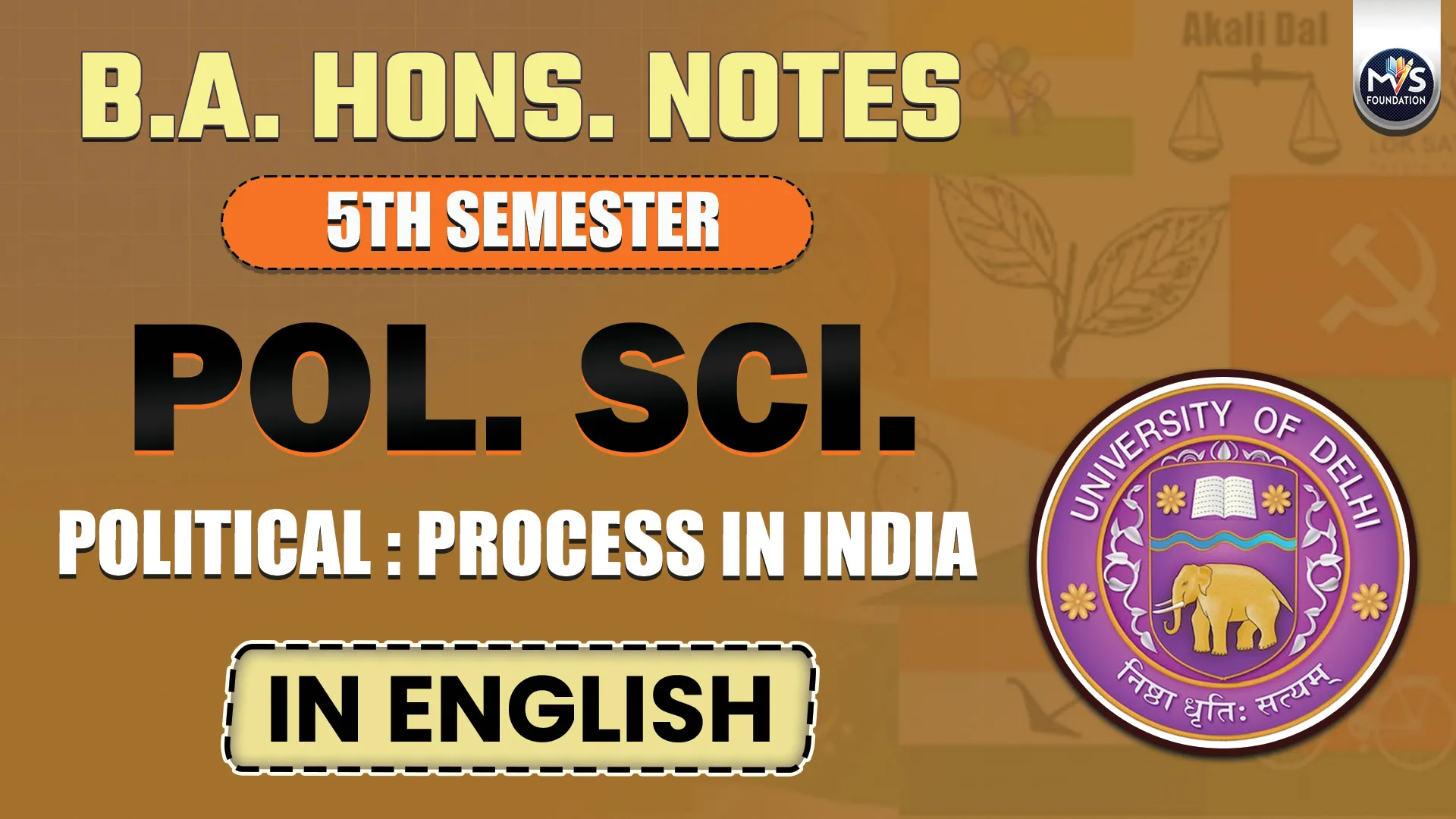
Get in Touch
We will get back to you within 24 hours.
Welcome to MVS Blog

Q1-Explain the meaning and role of political party and also explain its types.
Answer
Introduction
Political parties are the basis of democracy. They represent the interests of different sections of society, unite voters, contest elections and play an important role in forming the government. Political parties not only act as a bridge between the people and the government, but also keep developing themselves according to social changes and public sentiments. Their role is very important in making democracy strong and permanent.
Meaning of Political Party: "Political party is an organised group of like-minded people, which represents the interests of the society and works to formulate policies by gaining power."
Definition of Political Party by Various Thinkers:
According to Edmund Burke: "A political party is a group of people whose members are bound together by common principles to transform national interest through their collective efforts."
According to Giovanni Sartori: "A political party is a political group which is officially recognised as being part of the electoral process and which may support candidates for (free or non-free) elections on a regular basis."
According to Joseph Schumpeter: "A group of persons who agree on certain principles for promoting the common welfare is not a party. A party is a group whose members engage in a competitive struggle for political power."
Role of Political Party:
The role of political parties is very important in making democracy successful and strong in India. They establish dialogue between the public and the government, run the government by being in power or by being in opposition and motivate the government to work in the right direction. In a democratic country like India, political parties play an important role in the development of the society.
1. Political education and formation of public opinion : Political parties raise public awareness, highlight social problems and launch movements for their solution. They promote political education by shaping public opinion.
2. Formulating Policies and Programmes : Political parties propose policies and programmes in their manifestos before elections, which guide their actions after coming to power.
3. Contesting elections : Political parties field candidates who seek support from the public and attempt to win elections by propagating the party's agenda.
4. Forming and running government: After coming to power, political parties form the government and run the administration according to their ideology and policies. They organize the governance by appointing ministers.
5. Link between the public and the government : Political parties convey the problems of the public to the government and work to bring government schemes to the public.
6 . Contribution in law making: Political parties participate in the law making process in Parliament and Assemblies. They propose laws, discuss them and get them passed.
7. Monitoring the Government : As opposition, political parties review the policies and actions of the government. They oppose wrong decisions and suggest better alternatives.
Ultimately, the responsibility of political parties is not limited to only gaining power and governing. Even when not in power, they strengthen democracy by being in opposition. It is important to understand the role of political parties in a democracy like India, as they are an important part of the democratic process.
Types of political parties:
India has a multi-party democracy, where different political parties reflect the diversity of the country and the varying wishes of the people. As of February 2024, there are 2846 registered political parties in India. These political parties are classified based on their area of operation and issues:
National Party: These parties are active throughout the country and participate in elections in all states. They have an ideology that appeals to people across the country.
Examples: Bharatiya Janata Party (BJP), Indian National Congress (INC).
Regional Party: These parties are active in one or a few states. They mainly represent regional issues and cultural identity.
Examples: Assam Gana Parishad (AGP) - Assam, Telugu Desam Party (TDP) - Andhra Pradesh.
Local Party: These parties work at a smaller level, such as district or municipal corporation. They raise local problems and seek solutions.
Examples: Mithilaanchal Vikas Morcha (Bihar), Vidarbha Rajya Aghadi (Maharashtra).
Identity-based Party: These parties are associated with a particular caste, religion or social identity. They aim to represent the interests of that community.
Example: All India Majlis-e-Ittehadul Muslimeen (AIMIM), Bhartiya Tribal Party.
Ideology based parties: These parties work on a specific issue. Their main objective is to draw people's attention to that issue and make policies to solve it.
Example: Telangana Rashtra Samithi (TRS), whose main objective was the creation of Telangana state.
Conclusion
In conclusion, it can be said that political parties are the foundation of democracy. They play an important role not only in forming and running the government but also in keeping democracy strong and accountable. Without them, functioning of democracy and solving the problems of the people is not possible.
0 Response